Are my thoughts really true? OCDDo you own your thoughts, or do your thoughts own you? Every thought you have has validity of who you are and what you wanted to think of...right? Errrrr Wrong! There is a point where you have to look at the behaviors you're doing because of the thoughts and see who has ownership. Here is what I mean! The thoughts that cross you remind predict your actions. We either are going to push a thought away or do an action or a behavior because of the thought. Intrusive thoughts are thoughts that we don't really want but we have them anyway. They come and go as they please. The thoughts we give attention to are the ones that want to stick around. But we don't always react to our thoughts. If we did, wouldn't we really be our thoughts? For example...I'm sitting at a restaurant and am looking at someone's food. I'm hungry, my food hasn't gotten here yet. I have the thought, I should go over there and take a piece of bacon. I wonder what would happen. I have feelings, I have thoughts....you know what I don't have....the action. This tells us that we ACTUALLY have a choice. I can see that thought as random noise. meaningless. Because a thought is a thought. Here is a literal definition of a thought. It is merely an idea or opinion created by your mind. It is sudden and spontaneous and has no particular origin. Wow. think of that. This thought has no home. It's a random collection of thoughts that can cause real emotions which make us doubt and question something. So who is owning your thoughts? Well in one way, you do. In another way. No-one does. It has no where to go until we do an action to put it in it's place or just let it fly on by. When it comes to these intrusive thoughts, they can be about anything and cause extreme doubt, which make you believe they are valid. These random thoughts can be toward relationships, getting sick, possible harm, memories, and even responsibilities. When these thoughts don't match your value system we need to treat them as fluff. Nothing. Garbage. A random signal. Meaningless. Once we attach to it and attempt to figure it out, it's going to happen more and more and more. That is when these thoughts own you. You're doing behaviors to remove the thought or perceived threat. Let me tell you why it's important to recognize that you aren't your thoughts. If I take every random thought and run with it. I'm going to be convincing myself that I'm a monster pretty darn quick. If I pass by a girl and my brain says, "wow, she's cute" my brain tries to make sense of this. It's going to say, "well, you must not love your spouse" or you "just cheated" OR I could say, "hey, thanks for the thought today brain." Ultimately, we need to stop taking our brain so seriously. It's screaming out thoughts just to get your attention and says they all mean something, but you're not going to fall for it anymore. Let's actually own these thoughts by giving these types of responses: "sup thought" "coolio, thanks for that." "yep, I guess that could happen" "maybe, maybe not." "you're welcome to stay thought" You're also practicing now pushing them away or making since of them. You're not giving them a good home to burrow into. Once you say, this thought has meaning. It just snuggles right into bed with you. Taking the opposite and not giving it a great answer and just letting it pass on by...it moves over to the neighbors.....no neighbor. It may stick it's head over the fence to try a few more times. But that response of "I do not care" is important so it knows, "man, you can keep trying, and I'm willing to listen to you, but I'm giving you nothing." But Nate! How will I know when it's a thought I actually need to pay attention to? Well, here's my indication. Anxiety mixed with an urge to know. It's a trap! Anxiety always tell the brain the thought is dangerous, BUT here's the kicker. If you don't actually see the danger right in front of you, and I mean it. RIGHT IN FRONT OF YOU. It's not super obvious. Then, we're treating a thought as a thought and allowing it to pass. If you treat a thought as a thought, but try to push it away, you're saying it has value. We don't want to do this. Give yourself more grace for having a thought. No really. Enjoy your life. Enjoy your brain and all the processes it does. the positive thoughts and even the negative ones. Our brain isn't trying to hurt us. Instead, it's actually attempting to help. It's just not doing a great job at it at times. Our job is to retrain it by the responses we give. That response is the most important thing in all of this. Think about this with the next thought you have that causes some distress. My action right now is going to determine if this is important or not. Choose wisely. The next time you have intense intrusive thoughts and you're trying to figure out what you're going to do with them....remember that you don't have to do anything. You have a choice if your thoughts are going to own you or if you're going to own your thoughts. Did you know there are at least 3 types of intrusive thoughts? I made a video about these and how to actually get them to slow down. You're going to need to enhance these skills so you can become even more of a boss! How to own your own thoughts
0 Comments
Why OCD feels so realI'm Nathan Peterson, a licensed clinician and OCD specialist. Have you ever wondered why your OCD feels so incredibly real? For many, they know that the thought isn't real, but it feels real. So when something feels real, we react as if it's real....right? Think about it this way. When we watch a movie we can become immersed and get absorbed. We get hyper focused, get lost and even confused. We can lose touch of reality for a bit. For some they may watch the same movie and not be connected or immersed at all. So what's the difference? One person is allowing and inviting themself to get lost in the story and the other person see it for what it is and keeps it at the surface. Both have control over this decision. So when it comes to OCD and an intrusive thought, one main point to bring it even more value is the anxiety or distress attached. This anxiety says.....HEY, this is important. Keep thinking about this one. As you get engrossed into the narrative or story, we tend to feel more emotions and feelings. Making it feel...well...real. When something feels real, we spend time trying to "figure it all out" and prevent a possible catastrophe. Thus adding even more value to it. So when I hear someone tell me that their OCD thoughts feel so real, it typically isn't the first time they've had that thought. They've had this thought many times and in each moment taken the time to try to understand it. Thus making it feel more real overtime. We also know that OCD attacks what people care about. We have many doubts and questions in our mind everyday. But most of the time they won't feel real because we don't care about it. For instance, I may be watching tv and hear about how easy it is to get fungus under our toenails. Why do I not care about this....because it's not my thing. It's a threat like any other. My brain only cares about whatever I made a connection with and put value to. Maybe it's my relationship, maybe it's a certain disease, maybe I'm focusing on my breathing. Either way and either topic. It's all the same. One only feels real because we make it feel real. To stop this progression of realness, we can see or hear a threat and choose to not put value to it. Choose to see information as information. Choose to keep things uncertain. Choose to stop ruminating. Choose not engage in a compulsion. The urge may be there, but you always have the choice. When you take this proactive choice to not engage, it no longer feels real. Why? Because you are telling your brain that you simply don't care. You're letting life be what it is. And don't fall for the, "but I'm different" - That's just another trick that feel's real. You're a special person, but your topic or content of the obsession is not. So ultimately, let it feel real. Just choose to not engage. Not figure out. It's got to be pretty obvious that there is a problem. 1000% hit you in the face obvious. If that is not there, we may treat this "real feeling" as a false signal. Have you ever had a memory of the past, maybe a story that you've told over and over and over again throughout your life. Sometimes there is a point where you're actually not sure if it happened the way you've been telling it. Maybe it started out as an embellishment, but overtime it actually feels real with some confusion. I think of this the same way, we've told the story so many times, just like the OCD brain tells the content of the story and all of a sudden, we're confused on what is accurate and what is not. In simple terms: Stop telling the story! Stop creating a narrative. Stop with the "what ifs" - You don't need the story. Yourself without OCD doesn't need the story. Let it go. Sit with the discomfort and the "realness" feelings. Let it pass. The more you do this, the less scary and real it may feel. The way we think is the way we feel. If I felt someone is judging me, I'll feel anxious, scared, and sad. Even if this is untrue. I made up a story and fell for its tricks. Don't fall for it. Since OCD affects our mood, see how you can control these mood swings with this video here! Thanks so much for watching and I'll see you next time. OCD feels realOCD seems realHow long does OCD recovery take?Isn't this the question we have with anything we want to go away in our life? How long will I have this? This question can cause a lot of anxiety to think about and bring a lot of comfort. It all depends on what mindset you have. To jump right into it, recovering from OCD depends on many factors. Do I have the right tools and am using the right treatment? Am I actually using the treatment often? Do I have a strong foundation for therapy? For many, treatment can be relatively quick. Individuals can feel better sooner, while others it may take longer. It also depends on the severity of symptoms. It's already infiltrated itself into your day, we might as well do something with it. I almost hesitate to give a specific number because I do not want you to be your timeline because your timeline is YOURS. Here is what I've heard many specialists suggest their own research. Many can expect to feel recovered between 12-20 therapy sessions and can see a clinically significant decrease in OCD symptoms. Others give a timeline of 2 months. Personally in my own practice, I've seen individuals for a few weeks and others a couple of years. There is not that magical formula that fits each person, but I'll share with you what I see as a standard for individuals getting better quicker. -Using exposure and response prevention the correct way. -Building an exposure hierarchy to help you face your fears in a gradual way -Doing these exposures daily and when I mean daily I don't mean 1x a day. I mean, making it your part-time job. It could be hours. -Simply put. You've got to stop doing compulsions. Even if you're feeling anxiety. -Your focus must be on recovery. It needs to take priority. -You must accept the anxiety, fears, doubt, and guilt and decide they bring no more value into your life. You can't be wishy-washy. "I'll accept this fear, but have to figure out this one." All these things are taught in my online OCD course. I'll link it here. You can even try it for free. Ultimately, who's going to get better quicker. The person who knows the tools and will do them every once in a while or the person who's dedicated themselves to recovery. They recognize the pitfalls, where they can improve and use resources around them. I do want you to know that you can recover from OCD. Things can get better. I also want you to have realistic expectations of what "recovery" means. For some, it may mean they are feeling minimal symptoms. For others, they've reduced symptoms up to 60% and are okay with that. Others may not feel symptoms for weeks, months, years. But here's the deal, this doesn't happen by doing treatment for a few months and then be golden for years to come. It's something you work on to maintain the progress that you've made. So when you hear others say online, "I am recovered" keep this in mind. Here is the most important thing. Your recovery is your own. Your timeline is your own. If you do get caught up in, "how long will this take" you may give yourself an answer like, "it takes as long as it takes and I've accepted this." I want you to get on top of this, you need to go right now watch the 25 tips for succeeding in your own OCD here. Thanks so much for watching and I'll see you next time. How to recover from OCDRecovery from OCDOCD helpI talk about exposure and response prevention quite often as the best, in my opinion, treatment for OCD and anxiety. I mean you are actually facing your fears. Retraining your brain. You are essentially becoming a researcher. You are doing experiments. You are testing theories. You are willing to take the risk that the fear that you currently have may be a false signal. I’m going to go through how you can do these experiments better when it comes to your treatment. So how to do better exposures for experiments. One of the first things is to be aware of what the perceived threats are the come to your mind. Something like, if I don’t check the door one more time someone can break in. If I don’t pray, God will smite me. If I don’t put those knifes away I might react and do something. If I get close to that person, what if I like it or them. If I look at somebody else, maybe I don’t really love my partner. If I touch this item, I will get sick. This is how you are keeping track of your fears. What does it mean if you don’t follow through with your compulsion? What does it mean because you have a certain intrusive thought? This shows exactly how we can do experiments. Your brain already came up with the threat if you don’t follow through with the compulsion. Now it’s your time to test the theory out. Each one is going to feel very real. It’s going to feel very important. It’s even going to feel risky. But just like any experiment, we do not know the outcome until we tested. So what I would do is take one of my fears, and I would test the theory out. My brain says if I don’t check the stove, I will start my house on fire. So guess what I’m going to do, not check the stove. I’m also going to pay attention to all the compulsions that my body wants to do. Maybe it wants to listen for a fire, maybe in researching online the chances of the fire happening. I cannot do an experiment, and then mess with the data in between. Instead I’m practicing staying uncertain. Choosing to see what the outcome is going to be. I’m living my life, if there is a problem I will solve it. If there’s not there’s nothing to solve. While I am sitting with this uncertainty, I might be practicing statements tell me through. The house may or may not set on fire. Yep, might be my fault. Here’s the cool part, after a few hours, maybe the next day. Your brain looks that moment and says, hey, I told you that you were in danger. The house is supposed be on fire, it’s not, maybe throughout all false signal your way. You did this experiment to see what was going to happen. You tested the theory out. Your brain needs to know that you are testing these fears out, over and over and over and over and over and over and over again. It will finally get it. The thing is though, we can never be hundred percent certain that our fear won’t come true. But we are willing to take that risk, it might be the only way to retrain the brain and for you to enjoy life more freely. I know what you might be thinking, yeah I can test the theory out for something like your example. But mine is different. Mine is more dangerous. Might involves my child, mine involves my salvation, mine involves death. That’s one of the biggest pieces to get past, you are not special in that your OCD or anxiety is different. It’s all false signals. The only way for you to retrain the brain is to do these experiments. Do these experiments with meaning. It’s not, I’m going to avoid checking, and that I’m going to rock back and forth staring at a wall for the next five hours. It’s continuing to live life despite of this uncertainty that you’re living in. And anytime a threat comes up, but is a house going to start on fire? Your answer is, yeah man, maybe maybe not. I guess we’ll see after the experiment. My question to you is this….Has your fear EVER come true? Really think about it, the thing your brain threatens to you day after day. Thank you so much for watching and I will see you next time. How to help ocdHow to stop OCDExposure Therapy For OCDWhen somebody is facing their fear, they repeat this process over and over again their body tends used to it. We’ve seen this in many different ways such as jumping into a really cool swimming pool. At the very beginning it is very cold but their body adapts and get used to it. We didn’t have to spend time convincing ourselves it was going to get better, it just happens. This can be seen when we are using exposure and response prevention. When you are exposing yourself to the upsetting fear it’s going to feel very difficult at the beginning. Overtime, you may face the same fear but notice that the anxiety level is a lot less. This is seen as the habituation model. That we essxentially are doing exposures to reduce your anxiety by half or more. You’re getting used to it, you’ve taken the value away from it. When it comes to the habituation model, it’s all about this anxiety reduction in your body adapting just like the swimming pool. We will often use us as a measure of success if you were doing exposures correctly. If you’re anxiety is reducing this is a good thing. There are definitely some drawbacks from using the habituation model. Anxiety is something that we want to take value away from as well. If we are focusing solely on anxiety and having us go up and down individuals can get stuck in paying attention to the anxiety and wondering if they are doing the exposure correctly or not. Let me start obsessing about the actual anxiety versus the actual fear. Many will start to question and wonder why they’re in anxiety is not reducing. Well evidence shows that the habituation model does work, individuals can you get stuck with these pitfalls often. This is why there is another approach to exposure and response prevention called inhibitory learning. While this is still being researched there is evidence that shows that this helps reduce OCD symptoms as well. The difference is not the actual exposure you were doing but rather the way you were approaching it. With the inhibitory learning model you are teaching your brain more than reducing anxiety. Exposures are all about what can your brain learned from this experience. It doesn’t matter if your anxiety reduces or not. It might not even matter if you have anxiety while you’re doing the exposure. The whole mindset is all about your brain learning something new. So if I was facing a fear that really caused some anxiety, the way I approach is designed is to face the fear, expose yourself to it and RESPOND differently to the fear. You sole focus is what am I teaching my brain by every movement, words I’m saying, what I’m thinking, how I’m behaving. If I avoid touching something because it’s contaminated, my brain learned that that thing is dangerous. If I touched it and acted like it wasn’t a big deal and didn’t do any compulsions, then my brain learns it’s not a big deal. You may learn time and time again that you faced your fear and NOTHING happened. That is what the brain is learning. If you’re confused by the two, here is an easy way to remember: The habitual model means your body is getting used to it and your anxiety is reducing. Inhibitory learning model means your mindset is all about what your brain is learning from the exposure regardless of the anxiety felt. Realistically, there isn’t the right choice comes to do an exposures. You do what you feel like is best for you. I have used both models together where I focus majority of my time making sure that the person knows that the brain is learning something. We use anxiety as a measure but ultimately it doesn’t matter if the anxiety reduces or not. If your brain can learn that the fear that you have is not happening and it is it because you’re trying to control the situation what is the compulsions and to me that’s one of the best ways to do an exposure. Let things be. Stop controlling. It feels like an experiment, but the experiment is worth taking for your brain to learn something major. That you’ve never been a danger. Inhibitory Learning For OCDHabituation For OCDMy OCD Feels UniqueYou are not special! WAIT! Don’t don’t run away! I needed to get your attention for a moment. If you leave now you think I’m just a big jerk. Here’s what I mean by this!
So here is what I mean by you not been special. First of all your special. You matter in your feelings matter. Because you’re even watching this video right now it shows a lot of strength. So what I’m really meaning is that the OCD that you are experiencing is not different. Individuals can often think that the topic or theme that they are going through this special, it’s different, no one understands exactly what they are going through, its untreatable, I hear all these videos online I see all this advice but it doesn’t apply to my theme. Errrrrr! Nope! Your OCD is not special or different. This to me is one of OCD’s biggest lies. If it can make you believe that you are untreatable and that you are different from what you are experiencing then it’s got you. Individuals will often tell me that exposures they hear the specific theme just don’t apply to them. That if people really knew all the details of everything there experiencing they would change the treatment. So this is something that is important to note, something to tell your OCD even if you think it is different than everyone else’s to remind yourself that OCD is OCD. That follows the same route as everybody else. It’s making you doubt in question yourself and who you are as a person. It’s making you question the threats in the future and if they can come true or not. It’s giving you an intrusive thought putting a lot of meeting on this thought making you feel anxious that’s wanting you to do something to fix it. Simple as that. When we see OCD simply becomes simple. If you see OCD is complicated, different, or special, than it has the upper hand. To take control is to see it simply. Do not see yourself as different or special. Like I said you as a person are unique and special. Your OCD does not get to join this party. So as you’re seeing the videos that I have, your hearing advice given, and you think it doesn’t apply to your theme. Remember that this is a lie. Give yourself more credit. You can even remind your OCD that it’s not special when it’s trying to take the light. Give yourself the opportunity to do treatment. I know what people say, “but if you only heard what I’m going through you’d be shocked. You would say that mine is different.” Don’t even allow your brain to go there. Instead he focus on living life and enjoying. This tactic the OCDs using is no longer going to be something you fall for. Treatment is available if you’re looking for a specialist. So here’s my question for you, have you ever felt that your OCD is different than everyone else’s? How To Stop Ruminatingmination is essentially trying to problem solve the perceived threat or fear. It’s not as easy to just say, “stop ruminating”, so here are some tips for you when you feel like you’re stuck in the OCD rumination.
Mental Hoarding OCDMemory Hoarding can be so difficult for the person experiencing it. Imagine feeling the need to remember EVERYTHING. Seriously. If you can’t keep the memory, you’re not sure what will happen. Something bad? Maybe you’ll regret not having it when you need it. You're feeling anxious because there is a fear that you may need the memory later. Let us go through what mental hoarding looks like and how to do evidence-based treatments for it. Afraid to lose a memoryMemory HoardingLife AFTER OCD | What does it look likeWe often talk about what to do when you're having OCD symptoms. But, what does it look AFTER you go through treatment? Do you stop treatment? Are you cured? Let's go through this so you can have a good perspective of what "recovery" looks like. Schizophrenia OCDSchizophrenia OCD, Psychosis OCD, or plain ol’ “Am I going crazy” OCD. Whatever you call it, it can be very distressing to those to experience it. OCD can make someone believe anything. Even make you believe that you may be going crazy. You may even wonder if you’re hearing voices or seeing things that aren’t there. Let’s go through what it looks like and how to do the treatment. Check Out The Online Course For OCDPsychosis OCDGoing Crazy OCD |
AuthorNathan Peterson specializes in working with OCD and Anxiety related disorders and has done so for the past 7+ years. Archives
January 2023
Categories
All
|

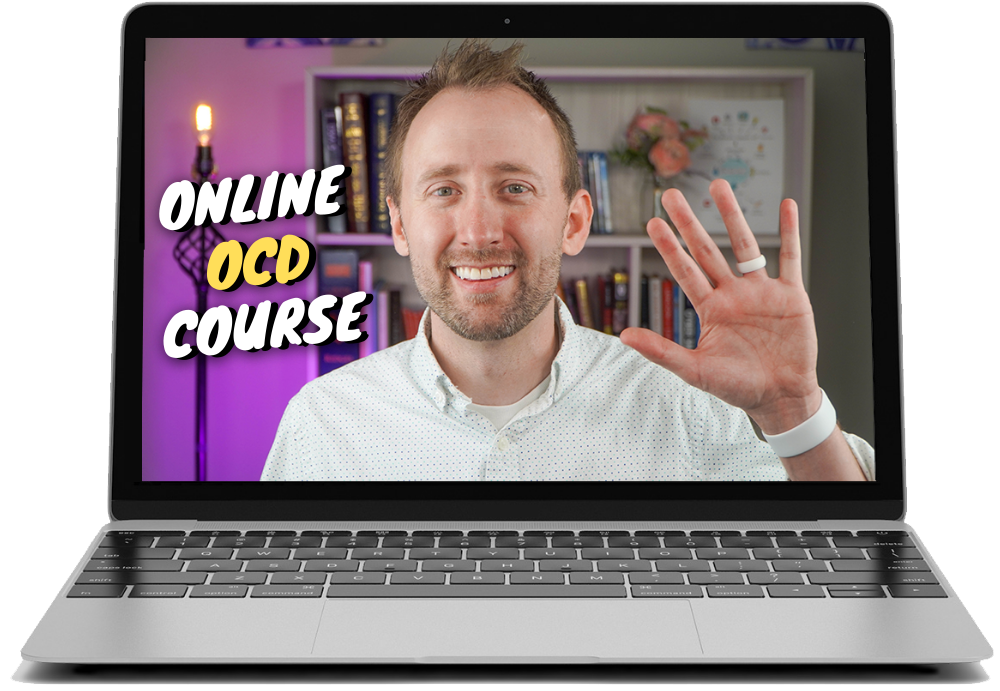
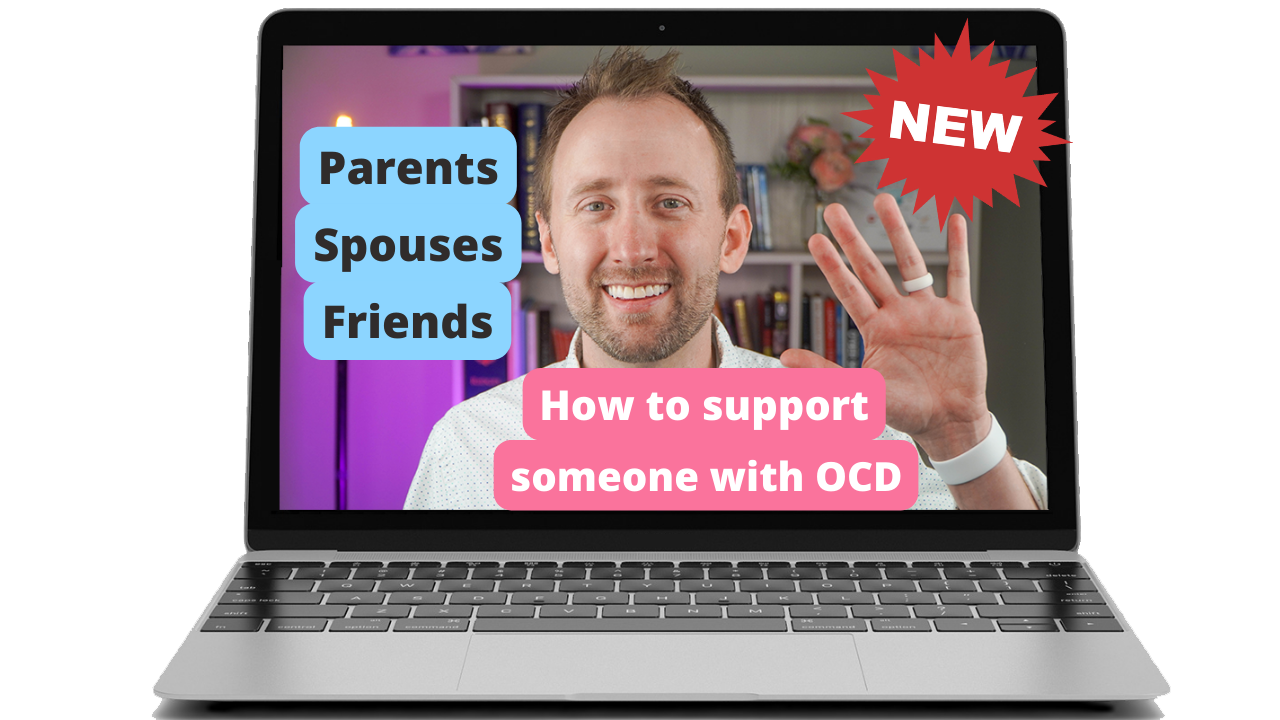
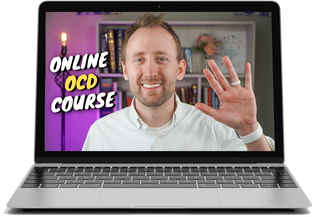
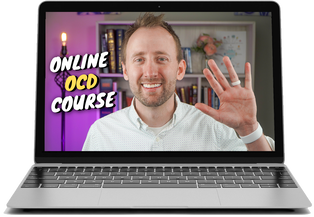
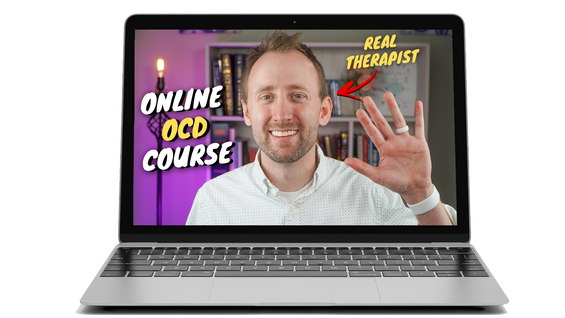
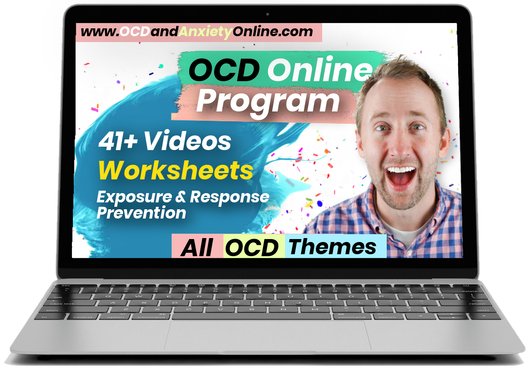
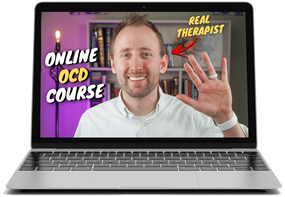
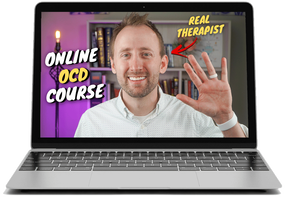
 RSS Feed
RSS Feed